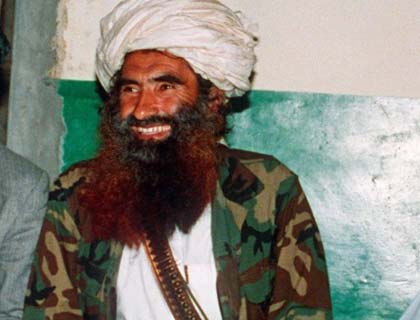KABUL - Leaked Saudi Arabia diplomatic cables, published last week on WikiLeaks, has revealed their embassy in Islamabad had contact with the Haqqani network and also discussed medical treatment for the militant group's leader.
According to Pakistan's Dawn news, the cables provide insight into contact in 2012 between Saudi officials and the insurgent group.
The online news portal however, reported that the Saudi foreign ministry expressed concern over the release of the cables but said the information contained in the leaked documents did not contradict Saudi Arabia's known position on foreign policy matters.
The Saudi government has reportedly not acknowledged these cables as authentic and asked its citizens to ignore them.
One of the cables, reportedly signed by former Saudi Ambassador to Pakistan Abdul Aziz Ibrahim Saleh Al Ghadeer, which is marked 'confidential', narrates his meeting with Nasiruddin Haqqani, one of the sons of Haqqani network chief Jalaluddin Haqqani.
The meeting allegedly took place between the ambassador and Nasiruddin, who was the emissary and chief financier of the Taliban-linked militant group at the time. The meeting took place on February 15, 2012.
The news portal stated that the venue of the meeting was not mentioned but that it was common practice for the ambassador to hold meetings either at the embassy or his residence, both of which are located in the heavily guarded Diplomatic Enclave – an area under the watchful eyes of Pakistani intelligence agencies.
The leaked cables state that during the meeting, Nasiruddin conveyed his father's request for treatment at a Saudi hospital, in view of his medical condition.
Another cable, dated February 25, 2012, says that the nature of the ailment had been explained to Ambassador Ghadeer. The communication, however, did not precisely mention the disease from which he was suffering, stated Dawn news.
Media accounts at the time claimed that Jalaluddin, who would have been 62 years old in 2012, was suffering from Parkinson's disease, while another news report said he was a patient of Lupus.
Ambassador Ghadeer's cable noted that Jalaluddin was based in Waziristan at the time and that doctors had recommended his hospitalization.
The Saudi cables show that Jalaluddin had carried a Saudi passport since the days of the Afghan jihad.
His son Nasiruddin had handed over that passport to Ambassador Ghadeer during their meeting. Though the cable did not state why the passport was given to the ambassador, it is possible that it was sent for renewal.
There are, however, no cables among those released so far detailing when Jalaluddin travelled to Saudi Arabia or if he ever undertook the journey.
According to the Institute for the Study of War, the group is still believed to be led by the 65-year old and ailing Jalaluddin who was a former anti-Soviet resistance commander known for ruthless effectiveness as a fighter.
His ties to Pakistan, and his base in and around Waziristan, go as far back as his exile during the Republican government of Sardar Daud in early 1970s. Jalaluddin however, set up a base in North Waziristan following the fall of the Taliban in 2001.
The group is accused of being behind some of the deadliest attacks in Afghanistan. Due to his father's ill health however, Sirajuddin is reported to be in charge of the day-to-day operations of the movement.
Pakistan has however, often been criticized for its links with the Haqqani network. The US State Department report last year titled 'Country Reports on Terrorism 2014' also notes that Haqqani network leadership "continued to find safe haven in Pakistan", but there has been little talk of their other patrons, including Saudi Arabia. (Tolonews)

